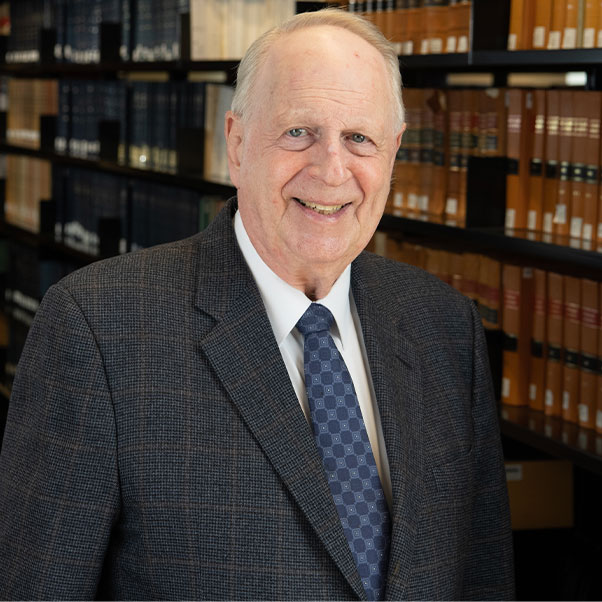Michael Greenberger was the founder and director of the University of Maryland Center for Health and Homeland Security (CHHS) and is currently a professor at the University of Maryland Francis King Carey School of Law. CHHS works on a broad range of homeland security and emergency response issues for federal, state, and local governmental agencies, as well as universities and public health entities. CHHS has a staff of more than 40 professionals, many of whom are recent graduates of Maryland Carey Law. More information about CHHS can be found at www.mdchhs.com.
Since joining the faculty in 2001, Professor Greenberger designed and teaches two courses focused on counterterrorism and emergency response, Homeland Security and the Law of Counterterrorism, introduced in 2002, and National Security, Foreign Intelligence, and Privacy, which was taught for the first time in the spring 2014 semester.
Professor Greenberger also served as the administrator for Freddie Gray’s Baltimore: Past, Present, and Moving Forward, a course examining the causes of the 2015 Baltimore unrest and possible solutions by focusing on social, economic, and other issues, including policing practices, criminal justice, access to housing, health care, education, joblessness, and community development.
He led the development and oversees the teaching of four related crisis management courses taught by CHHS senior attorney staff members at the law school: Law and Policy of Emergency Public Health Response, Law and Policy of Cybersecurity, Law and Policy of Emergency Management, and Cybercrimes.
Professor Greenberger has also taught Constitutional Law and a seminar on Futures, Options, and Derivatives, and furthers the academic efforts of the University of Maryland, Baltimore as a member of the Faculty Senate and Faculty Senate Advisory Committee, as well as the Faculty Advisory Council for the Maryland Higher Education Commission.
Professor Greenberger is often called upon to lend his extensive professional expertise outside the center and university. He is a member of the Baltimore Washington Cyber Task Force; served by appointment of the governor of Maryland on the Commission on Maryland Cybersecurity Innovation and Excellence, and now serves by appointment of the Maryland attorney general on the Maryland Cybersecurity Council. He is a member of the American Bar Association’s Law and National Security Advisory Committee, and a member of the National Academies’ Committee on Science, Technology, and Law.
He has served as both the vice chair and chair of the Maryland Governor’s Emergency Management Advisory Council. Professor Greenberger regularly comments on homeland security and emergency management topics for local and national media outlets, presents at professional conferences, and is among a handful of experts chosen in 2014 to serve on the inaugural editorial board for the International Journal for Disaster and Military Medicine.
In 1999, Professor Greenberger began service as counselor to the United States attorney general, and then became the Department of Justice's principal deputy associate attorney general. In the latter capacity, Professor Greenberger assisted the United States attorney general and associate attorney general in supervising the work of the justice department's Civil, Civil Rights, Environmental, Antitrust, and Tax divisions. Also within his portfolio of responsibilities were several counterterrorism projects concerning both law enforcement and public health policy, including organizing a nationwide counterterrorism war game ("TOPOFF I").
From 1997 to 1999, Professor Greenberger was director of the Division of Trading and Markets at the Commodity Futures Trading Commission (CFTC) working directly for then-chairperson Brooksley Born. He focused on issues relating to the regulation of futures and derivatives. He also served on the steering committee of the President’s Working Group on Financial Markets, and as a member of the International Organization of Securities Commission’s Hedge Fund Task Force.
Since that time, Professor Greenberger has frequently been asked to testify before congressional committees on issues pertaining to the regulation of financial derivatives. He has also served as the technical advisor to the United Nations Commission of Experts on Reforms of the International Monetary and Financial System and the International Energy Forum's Independent Expert Group on reducing world-wide energy price volatility. He is a member of the Faculty Advisory Board for the University of Maryland’s Center for the Study of Business Ethics, Regulation, and Crime. Discussing financial regulation, he also routinely appears both in the media and at academic gatherings, including appearances on CNN, ABC's "World News Tonight," the CBS Evening News, the NBC Evening News, CNBC, MSNBC, the Jim Lehrer News Hour, NPR's "Fresh Air," PBS's "Frontline," BBC Radio, and C-SPAN. Professor Greenberger's recent testimony and related media can be found at www.michaelgreenberger.com.
Prior to entering government service, Professor Greenberger was a partner for over 20 years in the Washington, D.C. law firm of Shea & Gardner, where he served as lead litigation counsel before courts of law nationwide, including the United States Supreme Court.
Professor Greenberger is a Phi Beta Kappa graduate of Lafayette College and the University of Pennsylvania Law School, where he served as editor-in-chief of the law review. He is a life member of the American Law Institute, and he has served on the board of governors of the D.C. Bar and as a board member of three nonprofit public interest organizations. Professor Greenberger has also served on the D.C. Circuit Advisory Committee on Procedures and as a mediator for the United States Courts for the District of Columbia.

